Timelines
A Timeline of the Most Destructive and Notable Computer Viruses in History
How does a computer virus infect a system? Much like a biological virus, computer viruses spread and replicate from one host to another, infecting a large number of computers quickly and causing mayhem and destruction. Computer programmers use languages like C, C++, C#, Java, Perl, PHP and more to write computer programs, this code can also be used to create viruses with malicious intent. Creating a computer virus is not illegal, but if it causes harm to other systems, the person who created it may be held liable for damages. Some of the world’s most infamous and devastating computer viruses can be found here in a timeline from HP.
Click below to zoom
Researchers agree that the first computer virus was circulated back in 1971. Called the Creeper virus, this program infected computers in a non-malicious way, simply putting a message up that said “I’m the creeper, catch me if you can.”
Computer viruses didn’t get big media attention until 1988 when the Morris worm was released causing over 228 million in damage in today’s money. In the early 2000’s when personal email was truly starting to take off, computer viruses exploded through mass-emailing schemes. The ILOVEYOU virus (released in 2000) was a fake love letter that would send itself to every contact in a person’s email list once opened. In 2001, a virus called KLEZ was estimated to infect over 7% of the computers in the entire world by sending fake emails and tricking victims into opening them by pretending to be trusted senders. It caused over 48 billion dollars in damage after inflation making it the 2nd most destructive virus on this timeline.
Timelines
Timeline Charts the Advances in Office Technology
Ooma’s new article, “Advances in office technology and the upgrades that replaced them,” brings us on a sweeping journey through the history of the workplace, focusing on technological advances from the days of handwritten ledgers to the AI-infused systems used today. Their work goes beyond a retrospective and invites us to reflect on how today’s ordinary office tools were once revolutionary, replacing more labor-intensive methods. The team’s narrative tone and intuitive timeline design make the history of office technology feel relevant and dynamic. If you’re curious about how technology shapes the way we work, this timeline is for you.
Click below to zoom.
The article sets the scene by asking us to imagine an office without computers, phones, or instant messaging. The journey begins in a 15th-century scriptorium where monks copy texts by hand in a painstaking process. We move on to the first office building in London, which highlights the ways office spaces have transformed as technology advances.
The timeline traces a world of familiar office tech, including word processing, computing, communications, security, printing, and human resources. Each highlights a chapter in the pursuit of connectivity and efficiency. The timeline’s layout connects inventions such as the Gutenberg press, the first typewriter, and digital word processors like Microsoft Word. Fascinating facts add extra context to the information. For example, the IBM MT/ST was the first word processor that allowed edits without retyping pages, which surely seemed miraculous in an age of typewriters!
Office computing is perhaps the most important section. It traces our progress from the abacus, human calculations of rocket trajectories, ENIAC, and the first electronic computer. From there, it’s on to the Xerox Alto and IBM PC that revolutionized personal computing. Today’s laptops and AI assistants wouldn’t be possible without these predecessors.
Communication technologies are another fascinating subject featured here. Follow a path from pigeons and human messengers to the telegraph, the phone, the fax, email, VoIP, and on to modern platforms like Slack and Zoom. These technologies highlight how technology plays a huge role in the ways we communicate and collaborate.
The timeline doesn’t short us on details. It also addresses the development of office security and administration. We started with single human guards, then moved to private security firms, then to magnetic strip cards for building access, and finally to antivirus software. We can also take a look at how administrative jobs, like human resources, have evolved.
The timeline truly shines as a visual chart of technological evolution. Centuries of technological advances have been distilled into an easy-to-read map of progress. You can use this information as a quick reference or a detailed research document. It draws readers in, inviting us to learn more with clear visuals that break up text and make a complex history feel accessible and exciting. A well-crafted timeline transforms a historical overview into a story worth exploring, and that is exactly what this timeline accomplishes.
Business Visualizations
Study Shows Three Decades of Self-Employment Trends
The U.S. economy and workforce landscape have seen many dramatic changes in the past three decades, not just in terms of trends, crises, and types of jobs workers pursue, but also in the way we work and structure careers. The team at Ooma created a new study displaying trending changes in self-employment. Their chart shows the percentage of the workforce that was self-employed each year. The numbers show that self-employment has always played a strong role in the American economy, with new Internet and digital industries pushing it to evolve. These changes present new opportunities and shake-ups to old work patterns.
Click below to zoom.
The Rise and Fall of Traditional Self-Employment
Ooma’s analysis is based on data from the U.S. Bureau of Labor Statistics. It shows that in 1994, self-employment represented 12.2% of the workforce. That’s 14.93 million Americans, a peak representing an economy where entrepreneurs, freelancers, contractors, and trades workers formed the backbone of the economy.
The next two decades saw a shift in self-employment, however. It declined to 9.8% by 2018, representing a shift to corporate employment in the era of social media and dot-com booms. The economy was recovering from a major recession that affected self-employed workers. Workers needed stability and benefits, and they turned away from gig work during the recession, with numbers plummeting to 59% in 2023.
The Impact of the Internet
Smartphone technology was developed in the late 1990s and perfected throughout the 2000s until it became a force that transformed the way we work. New apps like Uber, Instacart, and DoorDash ushered in a huge demand for gig work in the form of delivery drivers and people who could transform their own car into a taxi service. These platforms offered many work opportunities on top of a flexible schedule. People using these apps to get jobs could work whenever they wished.
Social media offered other exciting self-employment opportunities as we watched the rise of influencers and content creators who could market all kinds of digital goods and other services. A digital ecosystem made it more possible for personal brands to affordably market themselves to a wider audience.
The Pandemic as a Catalyst
The COVID-19 pandemic prompted huge changes in the way we work. Businesses closed down, layoffs surged, and many people looked for the quickest way to get flexible new employment. Self-employment options were the most accessible for many people. The self-employment workforce rose again to 4.2% in 2020. Many began to feel that starting their own business was more reliable than trusting a corporation. Marginalized people were especially drawn to self-employment, particularly women with families, and Black and Hispanic women. The flexible scheduling and greater power over work decisions was a more equitable fit for these women.
The team’s data proves that self-employment is so much more than just an alternative career choice. It can be an equalizer and drive American innovation. Self-employment can be a huge boost to local communities and continues to serve a vital role in our economy.
Charts
Timeline Displays Average U.S. Internet Speeds Over Time
In 1993, when the Internet became publicly available, the average speed was 14.4 Kb/s, and today, the average speed is 214 Mb/s. These are huge leaps in speed that can be difficult to understand. The team at Ooma shows the progression of this leap with a timeline of Internet speeds year by year. Tracking these Internet speeds can help us understand the technological developments that made this possible and show how the Internet has proliferated in daily life.
Click below to zoom.
At the top of the timeline, we see Internet speeds throughout the ‘90s at their slowest. Internet users had dial-up modems using phone lines to connect to the web. This was the slowest version of Internet technology we have seen on the timeline. The team provides context for the speed, explaining it would take almost four seconds to download an image of a meme, 11 minutes and 41 seconds to download an MP3 file of a song, and almost 34 hours to download the film, “The Dark Knight.” The peak speed reached in the dial-up era was 44.3 Kb/s. The graph shows significant jumps in speed in 1999, 2005, 2014, and 2022. These jumps occurred mainly due to technological advances, such as the creation of broadband and satellite Internet, as well as the expansion of access to higher speeds.
Context for today’s speeds compared to the past shows that it takes less than a second to download a meme, half a second to download an MP3, and only 8 seconds to download a long movie like “The Dark Knight.” Even though there have been vast improvements, the United States doesn’t have the fastest Internet speeds in the world. Singapore and the United Arab Emirates have higher speeds. The team tells us this is because of America’s vast landmass. It has been a challenge to provide high-speed Internet to rural areas, but there have been big improvements. Thanks to satellite Internet connections, people in more remote areas can have access to higher speeds.
Current projections show that by 2025, most of the world will have Internet access, even in remote areas with less infrastructure. The best equipment will be able to download a terabyte of data in just seconds through the use of fiber-optic cables, which are much faster than coaxial cables.
While there’s been great progress in providing high-speed Internet to rural areas, millions of Americans still don’t have access to high-speed Internet. The challenge is how to connect these locations to broadband. There are countless ways we have seen the Internet improve quality of life for people, from bringing them the ability to use telehealth, to social connections, to remote work opportunities. Timelines like this one from Ooma highlight progress but also remind us of the work that still needs to be done to improve American infrastructure. When we’ve seen such huge leaps in speeds, it’s not fair for some people to lack access to reliable Internet because of where they live.
-
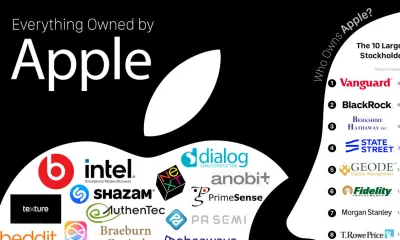
 Business Visualizations1 year ago
Business Visualizations1 year agoEverything Owned by Apple
-
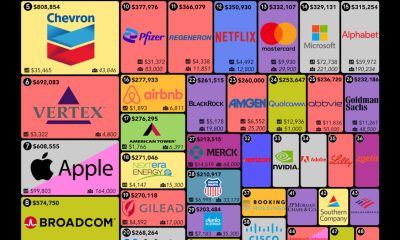
 Business Visualizations1 year ago
Business Visualizations1 year agoAmerica’s Most Valuable Companies Ranked by Profit per Employee
-
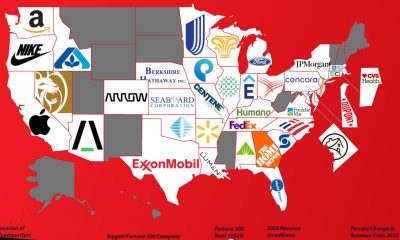
 Business Visualizations12 months ago
Business Visualizations12 months agoThe Biggest Fortune 500 Company in Every State
-
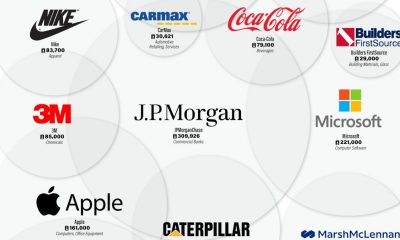
 Business Visualizations9 months ago
Business Visualizations9 months agoThe Biggest Employers by Industry
-
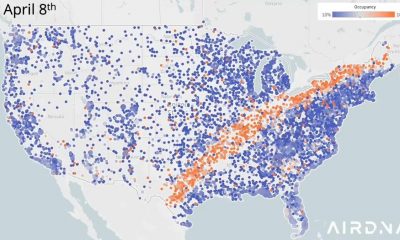
 Business Visualizations2 years ago
Business Visualizations2 years agoNew Animated Map Shows Airbnb’s Fully Booked Cities Along the 2024 Eclipse Path of Totality
-

 Business Visualizations2 years ago
Business Visualizations2 years agoEverything the Luxury Giant LVMH Owns in One Chart
-
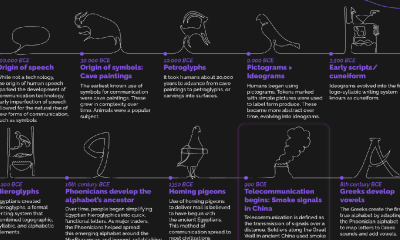
 Timelines1 year ago
Timelines1 year agoTimeline Charts the Development of Communications Technology
-

 Charts2 years ago
Charts2 years agoHow Many Crayola Crayon Colors Are There? A Lot.




